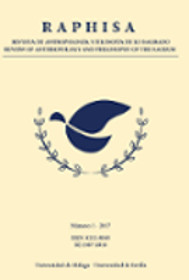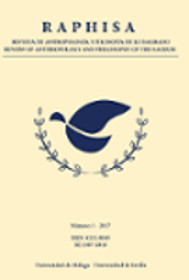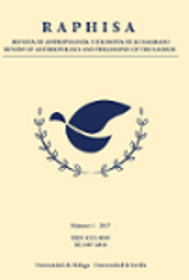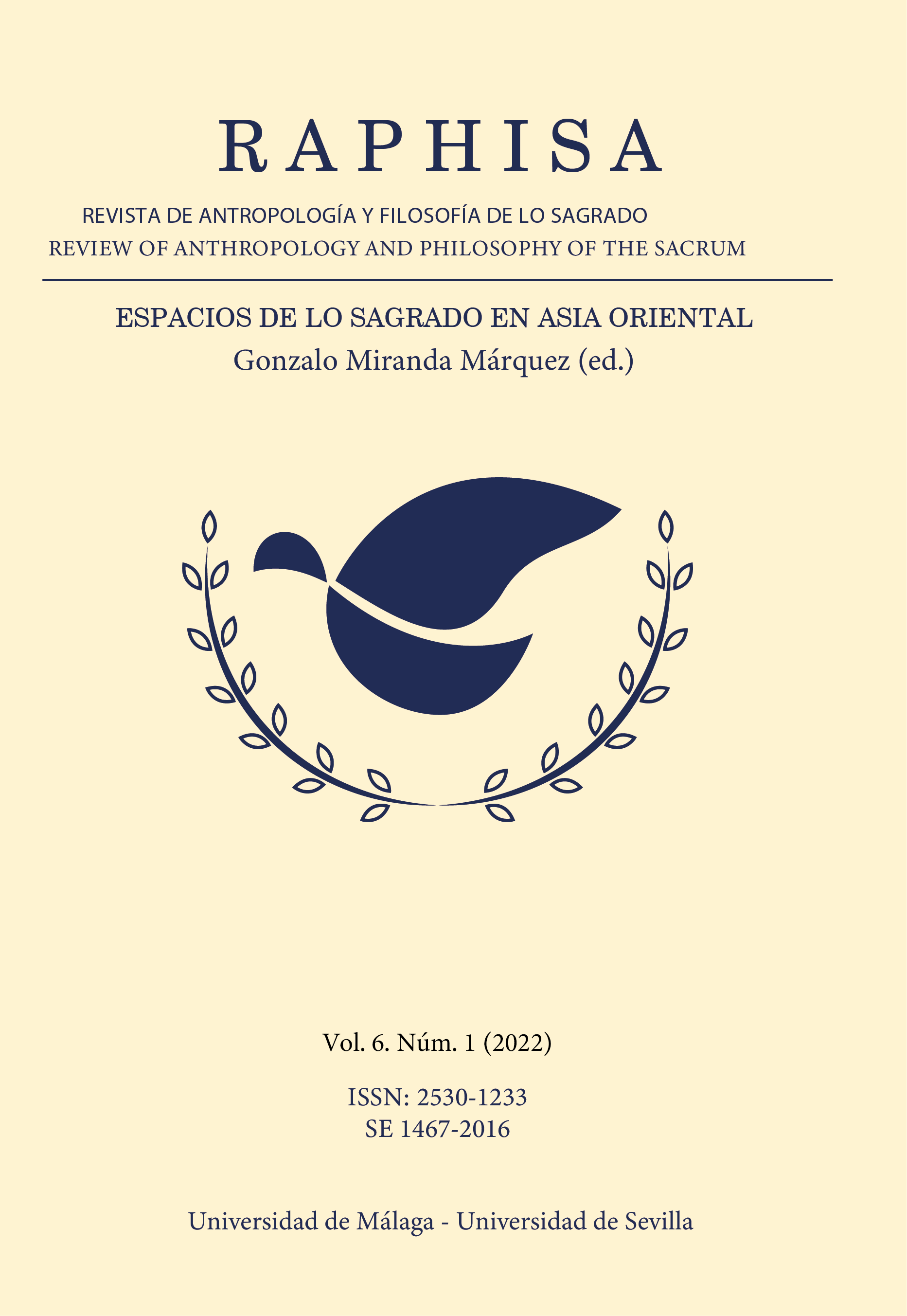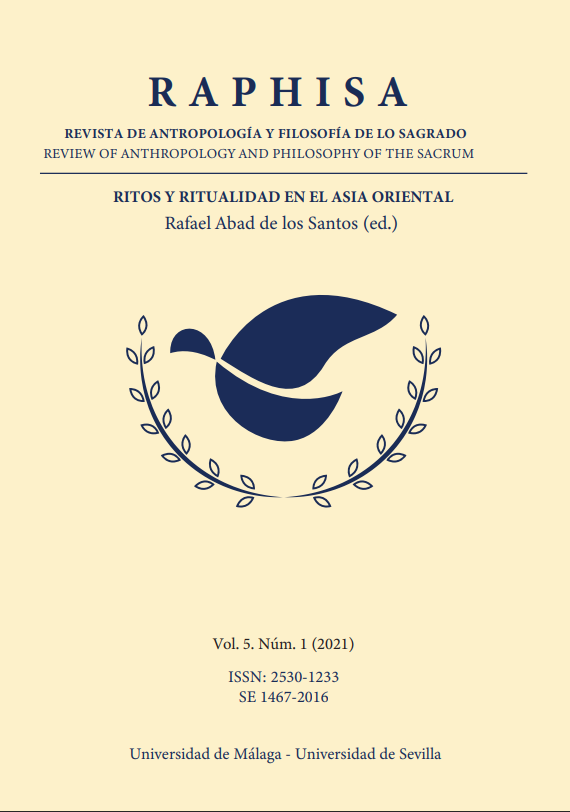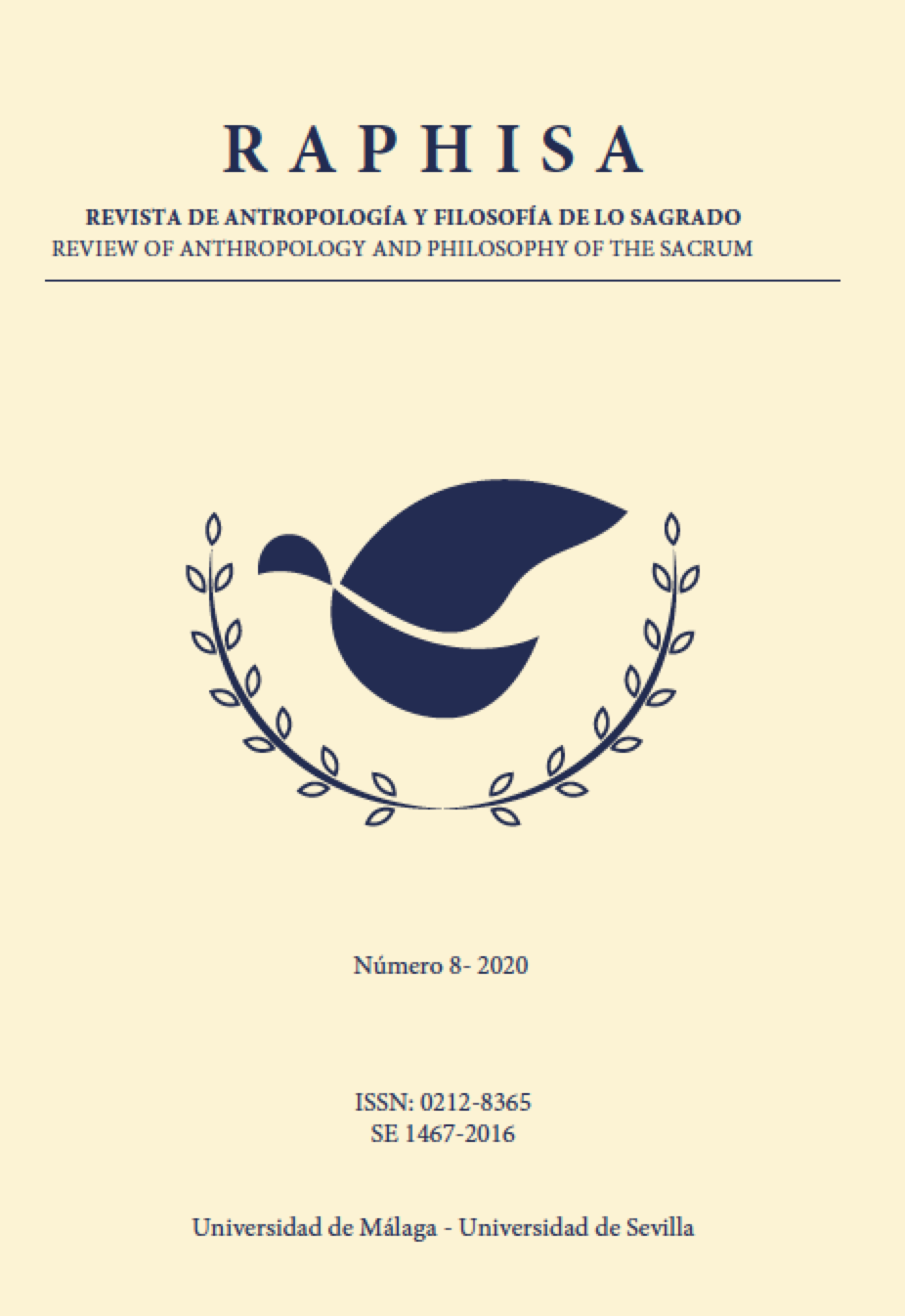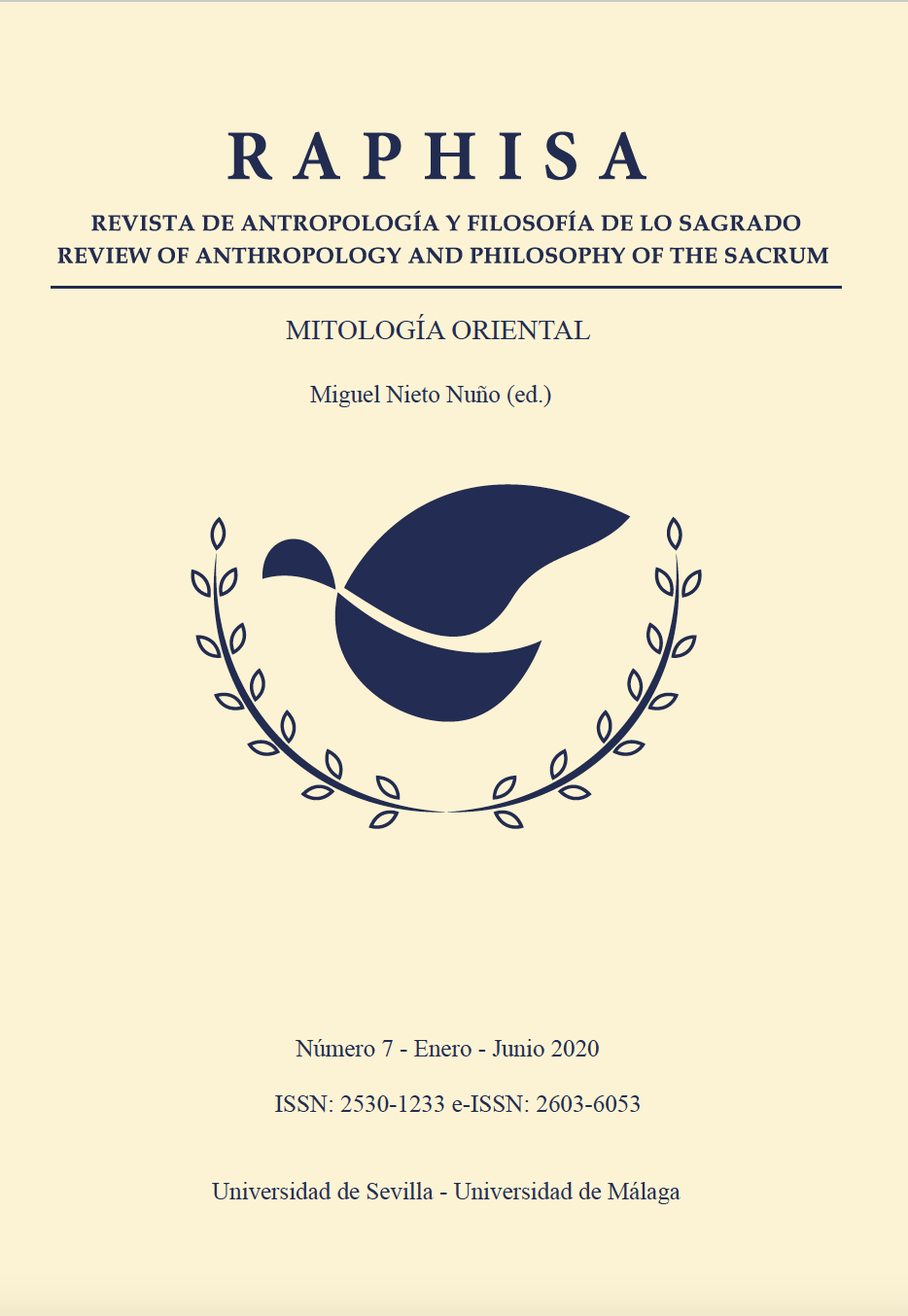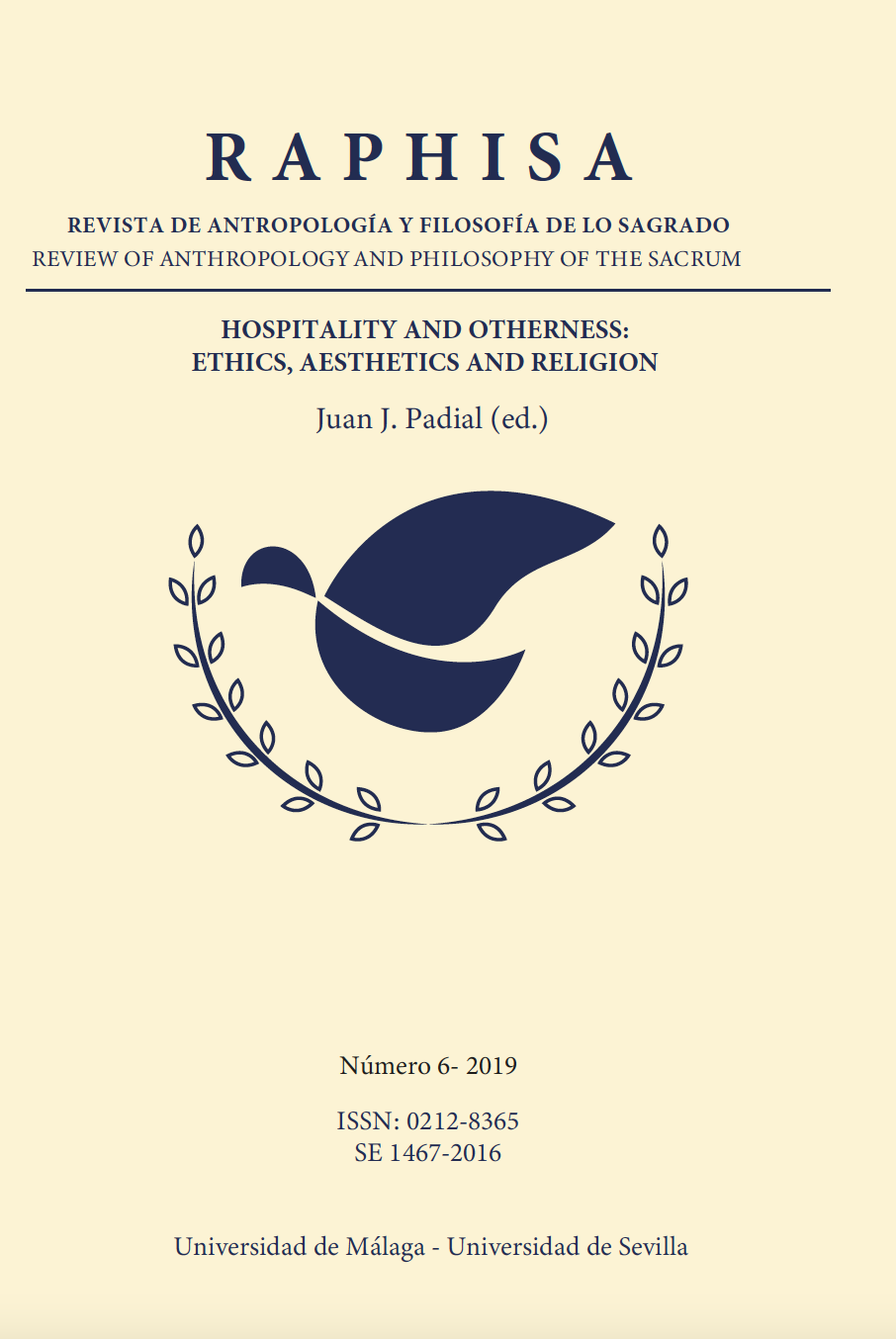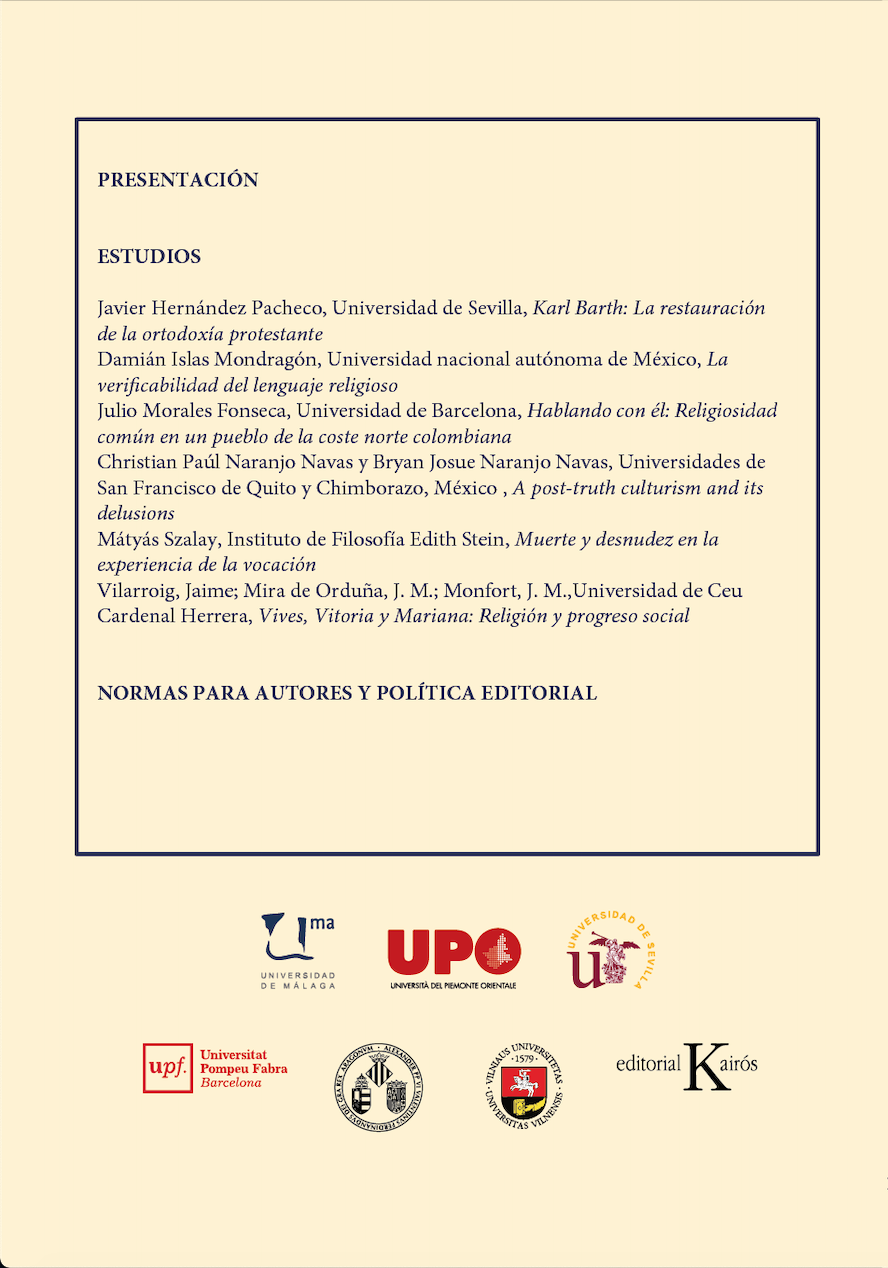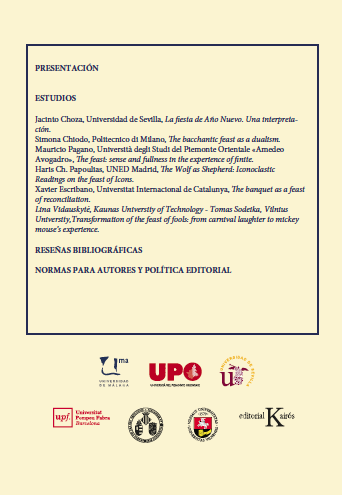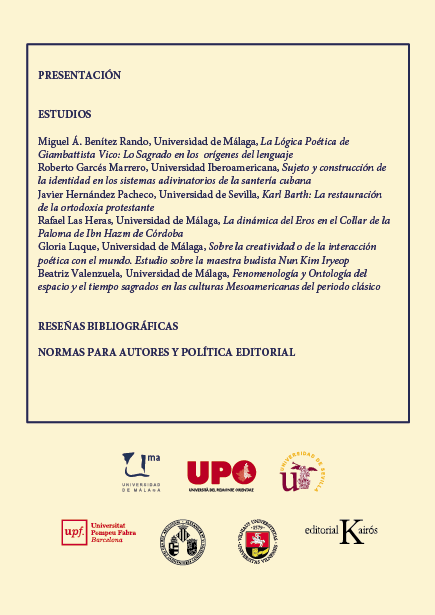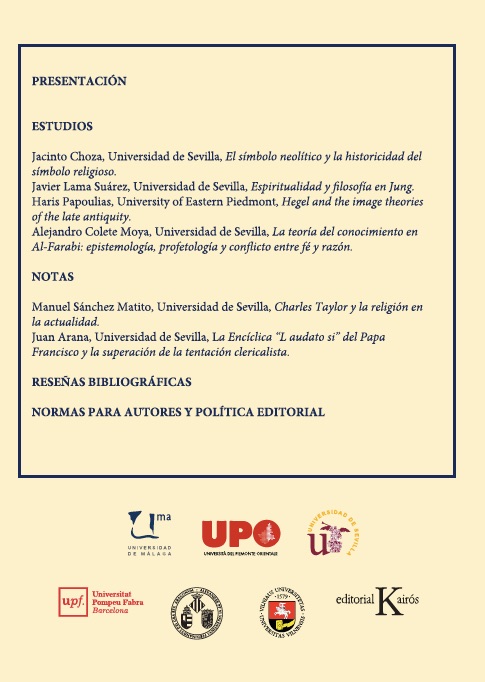Archivos
-
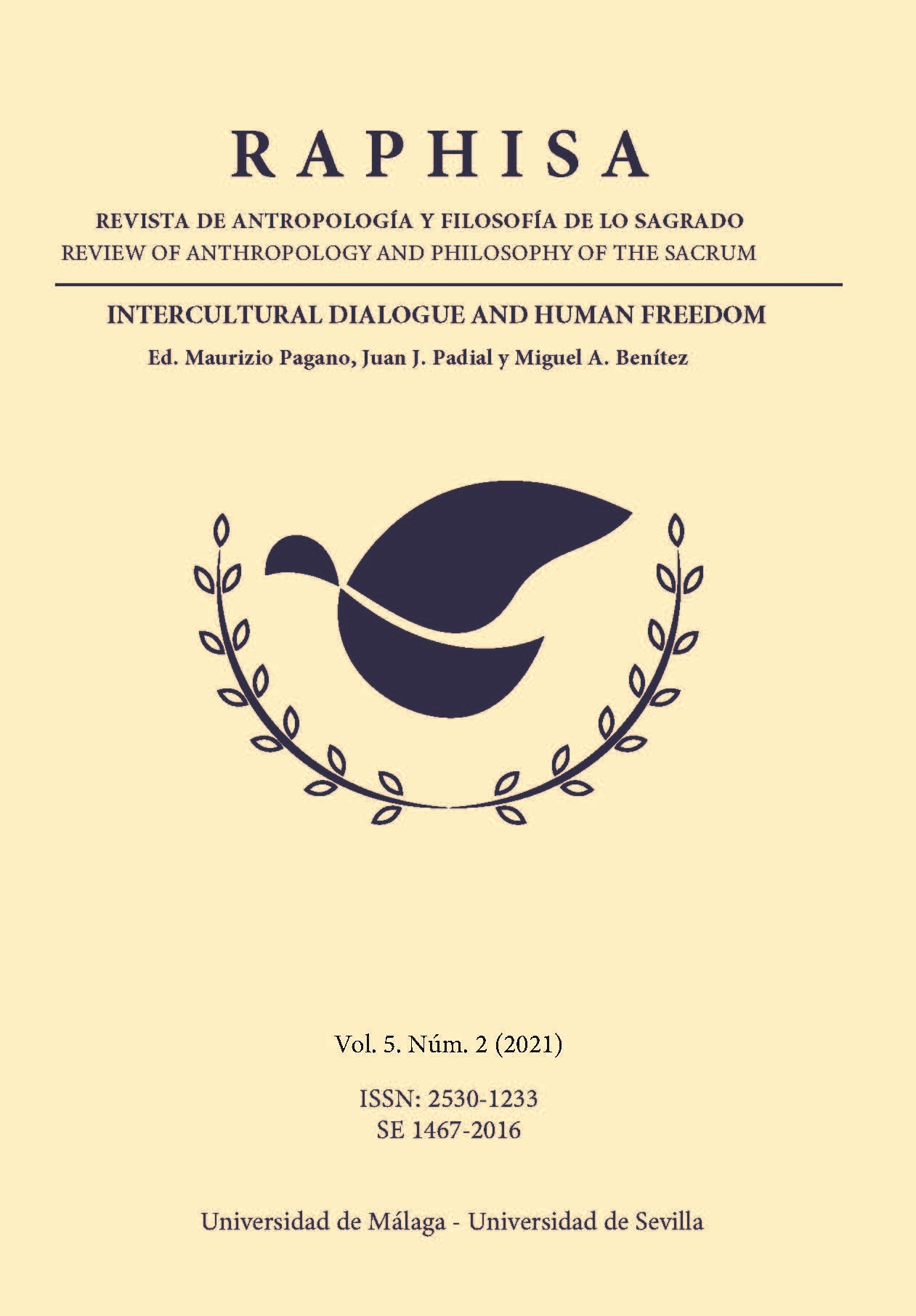
Vol. 5 Núm. 2 (2021)
Cultural and religious pluralism is one of the most important phenomena of the contemporary world, and therefore it affects philosophical and religious reflection directly. The issue of pluralism is felt in a particularly intense way today due to various phenomena typical of our time: among these, the emergence of great migratory movements and the enormous increase in communications and exchanges at a planetary level. Consequently, pluralism must be placed within the broader context of globalization. On the one hand, globalization accelerates communication between different parts of the world and helps to make them homogeneous. On the other hand, this trend towards standardization arouses strong reactions, aimed at affirming national and local traditions and identities; hence the spread of nationalism and sovereignty, which is a very strong obstacle to the development of a constructive dialogue between cultures and religions. Furthermore, the question of pluralism is also linked to the legacy of past centuries, which saw long processes of colonial and violent expansions of the West, and the conflicts that ensued.
The experience of pluralism has had a very positive influence in the contemporary world, because it has stimulated a vast series of reflections and research that have deepened the dialogue between cultures and religions, and have shown that this dimension is now an unavoidable component of contemporary thought. Intercultural dialogue is therefore a precious opportunity for our reflection, but it must be conducted with the awareness of the problems that even today threaten relations between cultures.
Among the salient themes that affect intercultural dialogue, the first one is the reflection on our common humanity, which is present in everyone, but is interpreted in different ways by different cultures, which also offer different perspectives on the relationship between the human being and nature. The question of the subject is connected to the above because the dialogue concerns above all the comparison between the path of Western philosophy, which first exalted and then subjected this notion to criticism, and the Buddhist critique of the subject. The discussion on individualism, which has established itself in the theory and practice of the modern West, also falls within this sphere: the criticism of this orientation is shared not only by Buddhism, but also by other traditions, from Confucianism to African thought; after all, Western philosophy also offers an important critical point here, with reflection on the theme of recognition and intersubjective relationships. The debate also develops in the field of economics, where the liberal theory of homo oeconomicus is confronted with broader views. Another central issue is the reflection on ethics and the possibility of founding a core of ethical principles valid for all cultures; this project, according to some authors such as Hans Küng, can have a sure foundation only in the religious sphere, while according to others, such as Martha Nussbaum and Amartya Sen, it can well be developed within a secular framework. The ethical discussion is centered around the themes of human dignity, freedom and responsibility, which remain central to any reflection of an intercultural nature. -
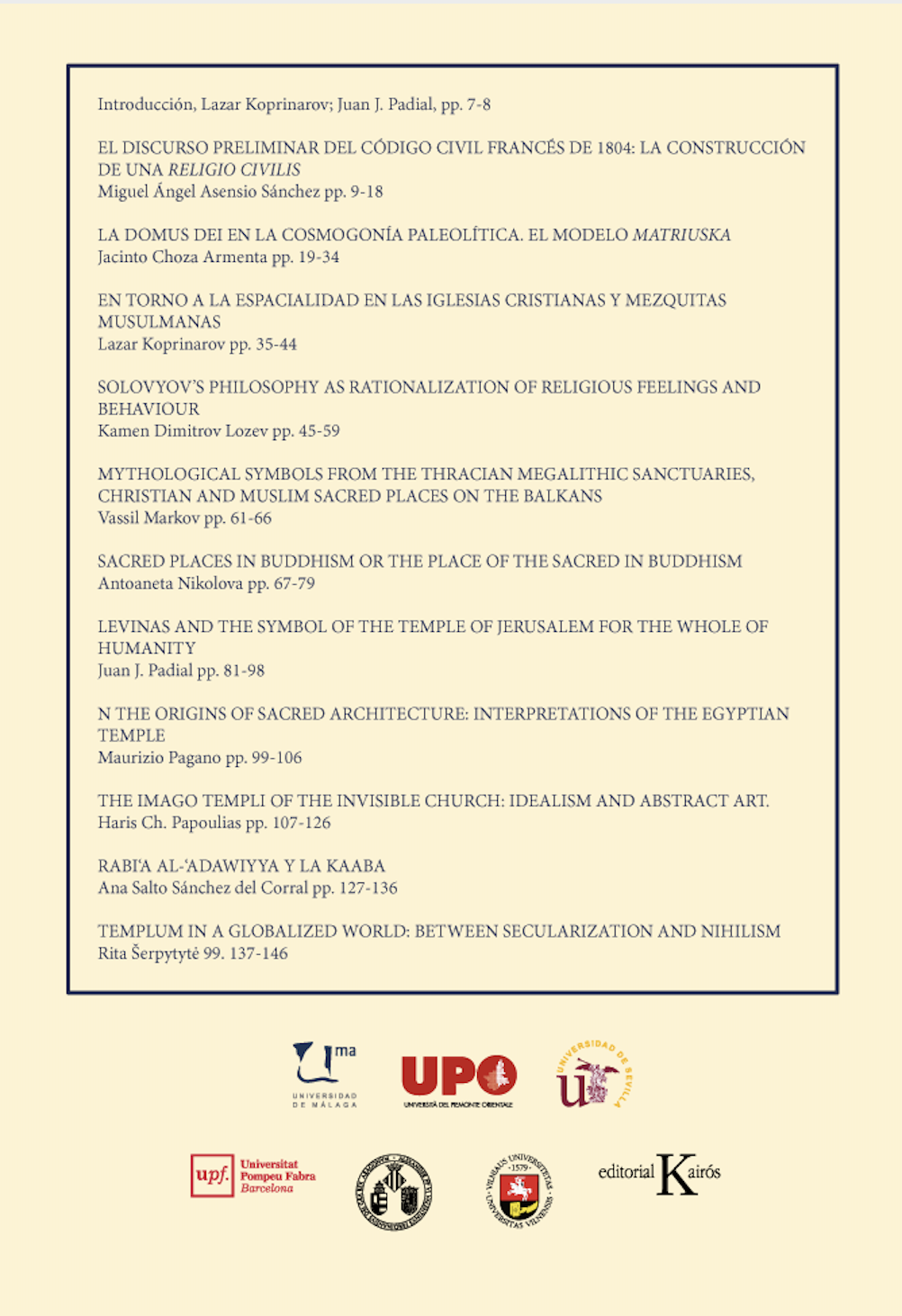
Julio-Diciembre 2017: Volumen monográfico: «Imago Templi»
Vol. 1 Núm. 2 (2017)Lazar Koprinarov y Juan J. Padial (eds.)

